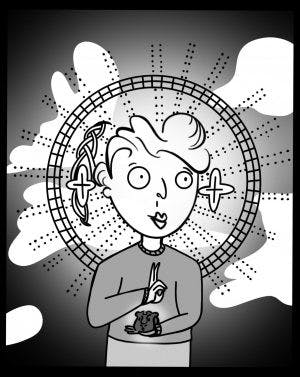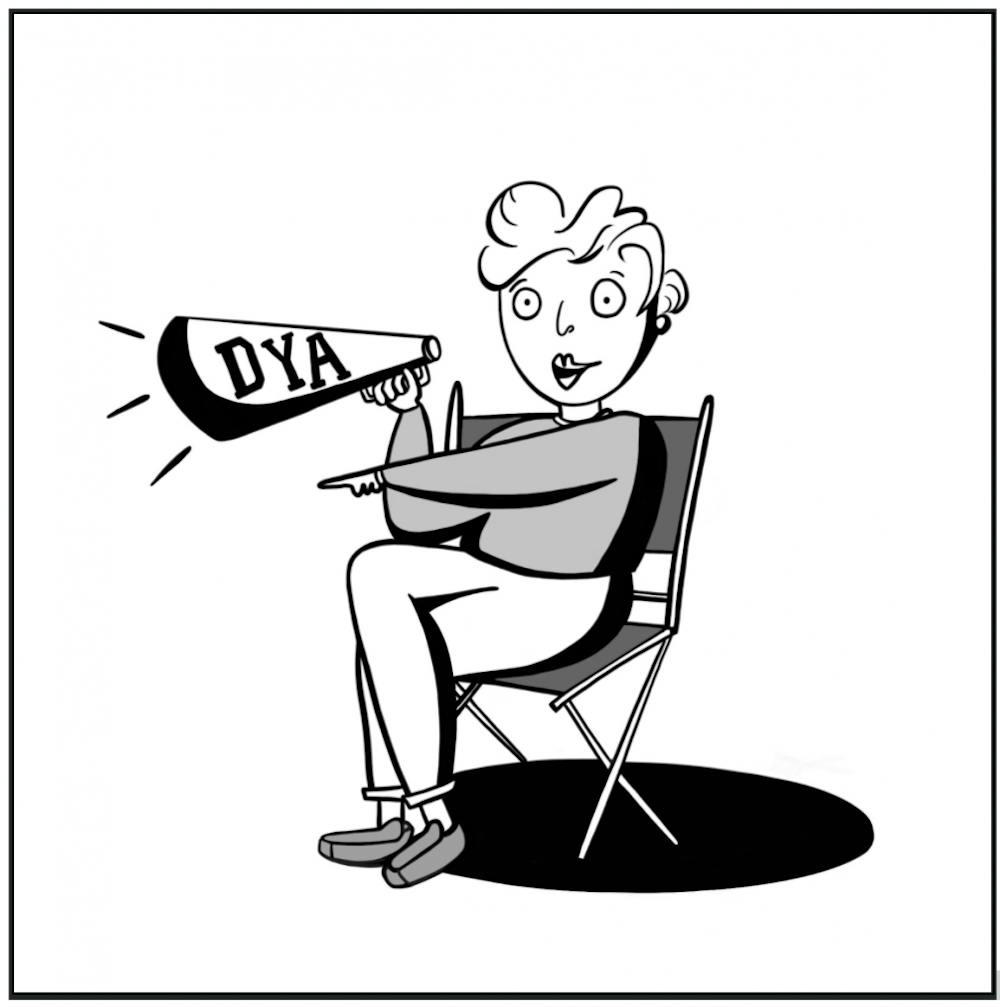Upon hearing the news that Phoebe Waller-Bridge and Donald Glover – two of my absolute favorite writer-actors – would be co-creating a series for Amazon Prime, I immediately thought I should revisit some of their earlier projects, namely Waller-Bridge’s kinetic TV show “Fleabag.” There has never been anything before or since “Fleabag” that is similar enough for it to be compared to; it stands alone as a monolith of frenetic, deeply captivating storytelling. During the opening days of the spring semester, as room quarantine bled into campus quarantine, I binged the show in its entirety — something I would normally recommend against, but for this show it felt appropriate.
“Fleabag” is intensely immersive. It draws you in like a whirlpool, encircling you with a charmingly witty yet unapologetically unhinged protagonist who is never given a name. In fact, very few characters are named; instead, they are credited by either their relationship to Waller-Bridge’s character (who is dubbed online as the titular Fleabag) or by their distinguishing feature: the godmother, the arsehole man, dad and the priest, to name a few. It is in this that “Fleabag” reveals its true nature: an intentionally biased show with a fixed point of view.
The show’s opening shots depict Fleabag looking at and speaking directly to the camera, talking to us as though offering advice; we are meant to see her as a coolly confident woman. ‘She’s been through this before,’ we think in these opening moments. She stands just beyond her apartment door, precisely disheveled with her jacket still on. She is waiting for someone, a man, to knock on the door and see her as if she has only just arrived home and has forgotten about their midnight rendezvous — though in actuality, she has been waiting at the door for 15 minutes or more. As the night continues, she describes to us different moments just before they happen, seeming both as though she were willing them into existence and emitting a sense of control. Yet, as the show progresses, this initial impression of Fleabag as our guide through this story slowly unravels.

It is not entirely uncommon for a television character to break the fourth wall, yet “Fleabag” does it not as a cheap trick but as a key filmmaking technique. Fleabag’s interaction with the camera is fantastically complex — at times making us her friend, her confidant, her crutch, her witness, her everything and occasionally her only. She speaks to us, looks at us, relies on us, eludes us, lies to us, boasts to us and confides in us. We are her best friend and her diary, following her closely yet always under her control. We inhabit the camera, seeing through its lens as we would our own eyes. Its movement becomes our movement and when Fleabag stares into it, it is as though she is speaking directly to us.
The editing follows suit, often cutting on a punchline so that Fleabag can give us her “I told you so” smirk. Each scene feels like a journal entry, offering us little to no transition as we jump headfirst into a moment. It can be initially jarring, yet to watch “Fleabag” is to relinquish control over to its protagonist, and soon the storytelling is maneuvered with ease. That is not to say, however, that this show has any sense of normalcy or routine, for each episode is entirely unique and never are we lulled into a sense of contentment. Moments fly by at 200 miles per hour, and just when you are able to grab a stable footing, she whisks you off to a new situation with new problems and a new code of discourse. We get only the information that is truly essential, and at times we are intentionally left in the dark. In one brilliant moment, Fleabag tilts the camera down towards the floor as if to say “this moment is just for me.”
Because the show neglects to name so many characters, I have come to the understanding that this show is not about its characters themselves but rather about their relationship to Fleabag. Her dad (Bill Paterson) is very plainly called “Dad,” because that is how she understands him in her life. This is where “Fleabag” becomes devilishly clever. If her dad is referred to only as “Dad” (and as “darling” by his fiancée), then why would someone like her sister (Sia Clifford) not be called “sister?” But instead, the sister does have a name, Claire. It’s choices like this that pull into question the nature of their relationship, and decoding its complexities becomes an essential part of the show.
“Fleabag” is a truly unique viewing experience, so wholly unlike its peers that I find myself marveling in its genius. The experience of watching “Fleabag” is what inspired me to create this column in the first place. Works of art like “Fleabag” send a rush to my heart and cause me to – literally – jump in the air in excitement about the prospect of what art can be. I got a similar feeling at the end of “Parasite,” when at its final fade to black I stood, hands on my head, mouth agape, in a dark theater in pure joy. “Fleabag” is surely one of the greatest television shows ever created, and to me there is nothing more exciting than watching a master at work.

Owen Mason-Hill ’22 is the Senior Arts & Culture Editor.
He previously served as a staff columnist, writing film reviews under the Reel Critic column. Mason-Hill is studying for a Film and Media Culture major, focusing his studies on film criticism and videographic essays.
His coverage at The Campus focuses primarily on film criticism, and has expanded to encompass criticism of other mediums including podcasts, television, and music under his column “Direct Your Attention.”




